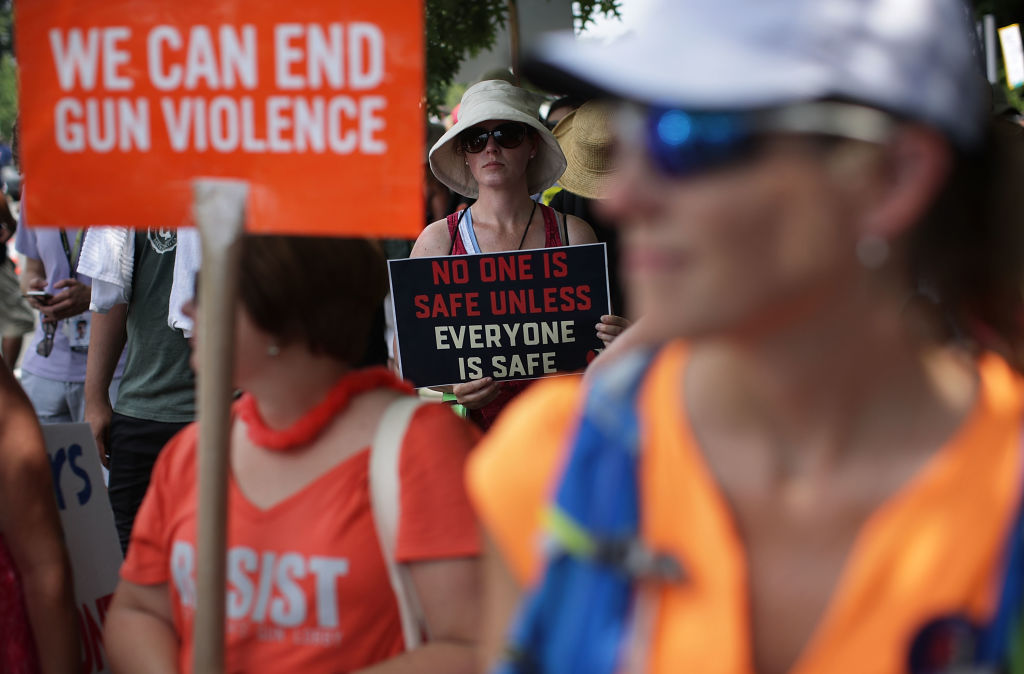Most Americans believe mass shootings are centrally about mental health. They're not.


A free daily email with the biggest news stories of the day – and the best features from TheWeek.com
You are now subscribed
Your newsletter sign-up was successful
In the wake of the Florida high school shooting, which left 17 students and teachers dead last week, President Trump has called for tackling "the difficult issue of mental health." His focus has received sharp criticism from experts, including The New Yorker's Adam Gopnik, who writes that Trump's calls say "nothing" because "every country contains mentally ill and potentially violent people. Only America arms them."
The focus on mental health, as it turns out, has far more to do with the public's perception of the gun violence crisis than the reality of the situation. In 2016, people with diagnosed mental illnesses committed less than one percent of all firearm homicides, NBC reports. "There's not really a correlation," explained criminologist Dr. James Alan Fox. "We like to think that these people are different from the rest of us. We want a simple explanation and if we just say they're mentally ill, case closed. Because of how fearful, dangerous, and deadly their actions are, we really want to distance ourselves from it and relegate it to illness."
Americans nevertheless overwhelmingly believe that mental health issues are at the heart of the issue, a new Washington Post/ABC News poll has found. Fifty-seven percent of Americans believe mass shootings in the United States are more of a reflection of "problems identifying and treating people with mental health problems" than "inadequate gun control laws," the poll found. Twenty-eight percent of people said gun control was the central issue, while nine percent said it was both mental health and gun legislation, and two percent said it was neither.
The Week
Escape your echo chamber. Get the facts behind the news, plus analysis from multiple perspectives.

Sign up for The Week's Free Newsletters
From our morning news briefing to a weekly Good News Newsletter, get the best of The Week delivered directly to your inbox.
From our morning news briefing to a weekly Good News Newsletter, get the best of The Week delivered directly to your inbox.
Additionally, over three-quarters of Americans said the Parkland shooting could have been prevented "by more effective mental health screening and treatment." The poll reached 808 adults between Feb. 15 and 18 and has a margin of error of plus or minus four points.
A free daily email with the biggest news stories of the day – and the best features from TheWeek.com
Jeva Lange was the executive editor at TheWeek.com. She formerly served as The Week's deputy editor and culture critic. She is also a contributor to Screen Slate, and her writing has appeared in The New York Daily News, The Awl, Vice, and Gothamist, among other publications. Jeva lives in New York City. Follow her on Twitter.
